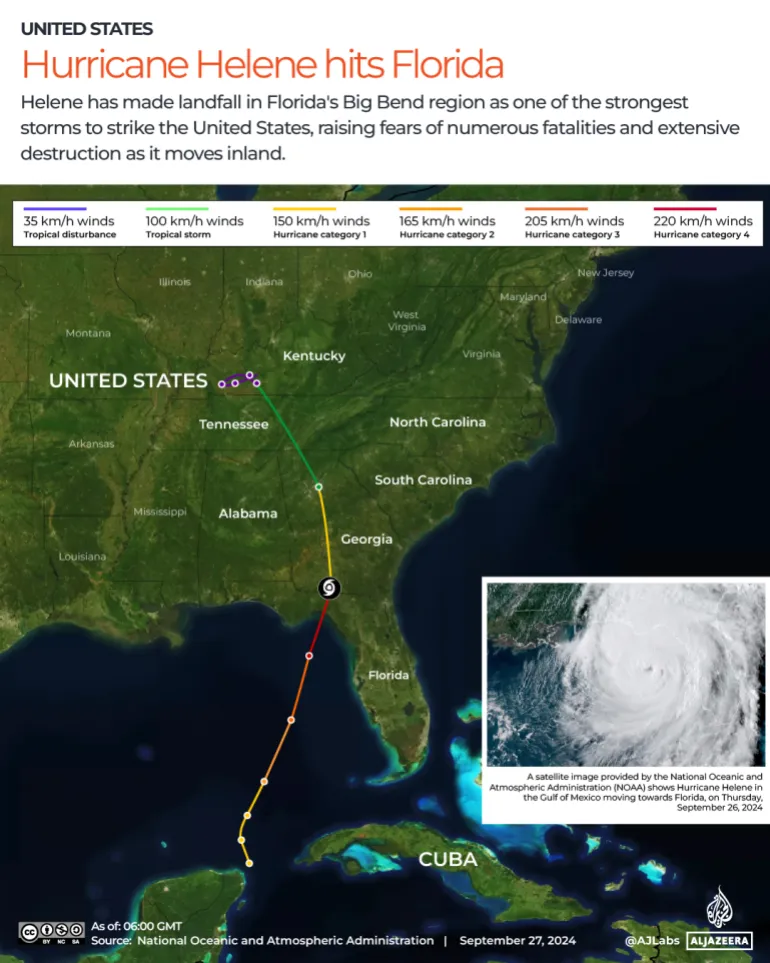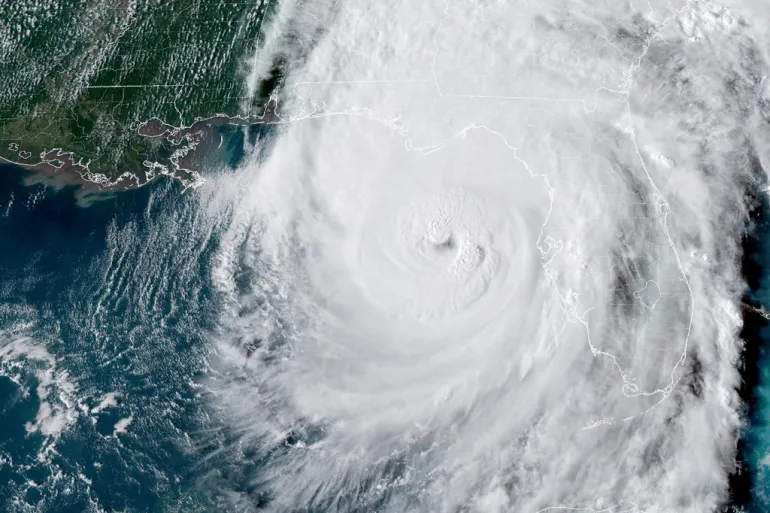Hurricane Helene
Officials in Florida are urgently imploring residents to comply with mandatory evacuation orders as Hurricane Helene barrels across the Gulf of Mexico towards the state, threatening life-threatening conditions.
As the massive storm advances, it has already caused significant damage in Mexico and brought tropical storm conditions to various parts of Florida.
Tragically, one individual was killed on Thursday evening when a sign collapsed onto their vehicle on a highway in Tampa, which was experiencing violent winds and heavy rain at the time, according to the Florida Highway Patrol.
The National Hurricane Center (NHC) has expressed serious concerns for the Florida Big Bend coast, emphasizing that everyone in the area is at risk of potentially catastrophic storm surge.
The NHC has raised Helene to an “extremely dangerous” Category 4 hurricane, with sustained winds nearing 130 miles per hour (209 km/h). “We’re expecting to see storm surge inundation of 15 to 20 feet [4.5 to 6 meters] above ground level,” warned NHC director Mike Brennan in a video briefing.

This level of flooding could reach the top of a second-story building, creating an extremely dangerous scenario for residents along this portion of the Florida coastline.
Brennan elaborated on the potential destruction, indicating that the accompanying waves could destroy homes and move vehicles, warning that the water level would rise rapidly.
The severe weather has already led to widespread flooding on roadways, school closures, and power outages affecting approximately 698,700 homes and businesses across the state.
In response to the impending disaster, a state of emergency has been declared in Florida, allowing authorities to take necessary measures to protect residents.
To facilitate evacuations, state officials are providing buses to transport individuals from the Big Bend area, which is home to about 832,000 residents, to shelters in Tallahassee, the state capital. In total, over 55 million people across the United States are under some form of weather alert due to Hurricane Helene’s impact.
States of emergency have also been declared in neighboring Georgia, North and South Carolina, Virginia, and Alabama, with the NHC warning that much of the southeastern U.S. could experience widespread power outages, uprooted trees, and severe flooding.
Additionally, the National Weather Service has cautioned residents in the southern Appalachian mountains about the potential for landslides and flooding on a scale not seen in over a century.
“This will be one of the most significant weather events to occur in this region in modern history,” the NWS stated.
Historical data indicates that only three Gulf hurricanes since 1988—Irma in 2017, Wilma in 2005, and Opal in 1995—have approached the projected size and impact of Hurricane Helene, according to hurricane researcher Phil Klotzbach from Colorado State University.
I am a dynamic professional, specializing in Peace and Conflict Studies, Conflict Management and Resolution, and International Relations. My expertise is particularly focused on South Asian Conflicts and the intricacies of the Indian Ocean and Asia Pacific Politics. With my skills as a Content Writer, I serve as a bridge between academia and the public, translating complex global issues into accessible narratives. My passion for fostering understanding and cooperation on the national and international stage drives me to make meaningful contributions to peace and global discourse.










